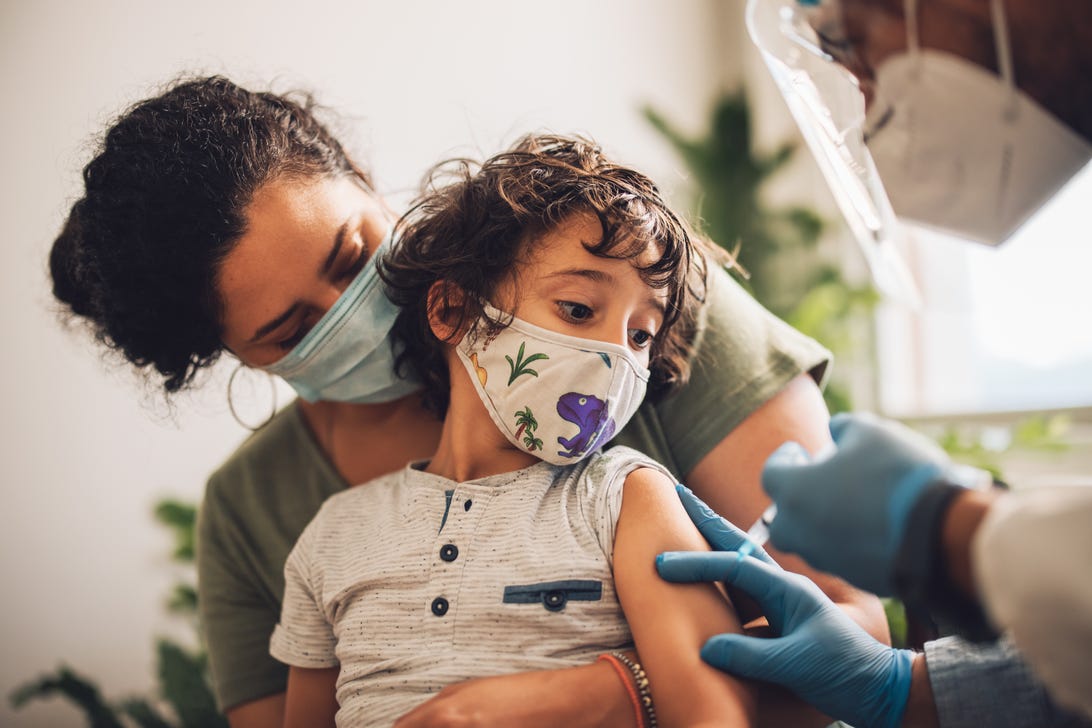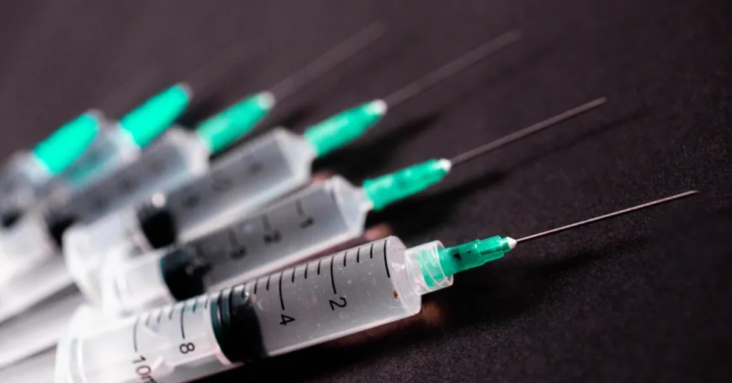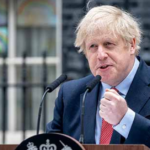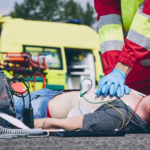
Pfizer and its partner BioNTech have resubmitted their application to have a three-dose COVID-19 vaccine for children aged 6 months to 4 years old gain emergency use authorization from the FDA. The FDA reportedly accepted Pfizer’s application to look at the data Wednesday.
“Pfizer and BioNTech completed a rolling application to the US Food and Drug Administration for emergency use authorization,” Pfizer said in an emailed statement.
Pfizer had previously asked the FDA to authorize its vaccine for kids 6 months to 4 years in February but postponed its request pending more data. Pfizer said last week that trials showed its three-dose vaccine produced a strong immune response in children under 5.
Ahead of the expected submission, the FDA last week said its Vaccines and Related Biological Products Advisory Committee would meet on June 15 to discuss emergency use authorization requests for Pfizer and Moderna vaccines for children aged 6 months and over.
Moderna asked for approval at the end of April. Moderna’s vaccine for children under 5 involves two doses of its 25 microgram vaccine (one-fourth of the volume of the adult Moderna dose). Pfizer’s is three 3-microgram doses — one-tenth of the dose for adults.
“We recognize parents are anxious to have their young children vaccinated against COVID-19, and while the FDA cannot predict how long its evaluation of the data and information will take, we will review any EUA request we receive as quickly as possible using a science-based approach,” the FDA told ABC News in a statement.
The FDA didn’t immediately respond to a request for comment. The vaccine would have to be approved by the committee before the full FDA, followed by CDC approval.
The information contained in this article is for educational and informational purposes only and is not intended as health or medical advice. Always consult a physician or other qualified health provider regarding any questions you may have about a medical condition or health objectives.
Pfizer Says Its 3-Dose COVID-19 Vaccine Saw Strong Immune Response in Kids Under 5
The company plans to submit its latest data to the FDA this week.

Pfizer and BioNTech’s three-dose COVID-19 vaccine for children ages six months to under 5 years produced a strong immune response, the companies said on Monday.
The vaccine for younger kids has an efficacy of just over 80%, according to a preliminary analysis. The results are based on clinical trials in which children got 3-microgram doses — one-tenth of the dose for adults — of the COVID-19 vaccine. Following a third dose, the companies said the vaccine elicited a strong immune response with only mild to moderate side effects.
“The study suggests that a low 3-µg dose of our vaccine, carefully selected based on tolerability data, provides young children with a high level of protection against the recent COVID-19 strains,” said Dr. Ugur Sahin, CEO and co-founder of BioNTech, in a release. “We are preparing the relevant documents and expect completing the submission process to the FDA this week, with submissions to EMA and other regulatory agencies to follow within the coming weeks.”
While the US Centers for Disease Control and Prevention last week signed off on a booster shot of the COVID-19 vaccine for children ages 5 to 11, parents have been waiting for a vaccine to get authorized for this younger age group.
Pfizer initially submitted data to the Food and Drug Administration in February for emergency use authorization of its vaccine for babies, toddlers and children under age 5, but postponed the official application and authorization process to wait for additional data on a third dose. Moderna and Pfizer have both asked the FDA to authorize low-dose vaccines for the youngest age group, and the agency has a tentative schedule in June to go over data on both companies’ vaccines.
Last week, the US crossed the grim milestone of 1 million deaths from COVID-19, and cases and hospitalization rates have been rising across the country. New, more contagious versions of the omicron variant are responsible. While numbers are lower than the surge this past winter, the rise threatens the relaxation of some safety measures, like dropped mask mandates.
When Can Kids Get the COVID Vaccine or Booster?

The US Centers for Disease Control and Prevention recommended COVID-19 boosters for kids ages 5 to 11 this month, widening the net for more children to get an extra dose in the midst of the most recent COVID-19 wave. Kids 12 and older have been eligible for a booster for months, at least five months after their last dose.
Pfizer’s booster for kids under age 12 is one-third the company’s adult vaccine dose. Only about 29% of 5- to 11-year-olds have completed their primary COVID-19 vaccine series (two shots), according to a May 25 report from the American Academy of Pediatrics.
Parents are still waiting for word on the first COVID-19 shot for babies, toddlers and children under age 5. Moderna and Pfizer have both asked the FDA to authorize low-dose vaccines for the youngest age group, and the agency has set a June 15 date for its independent committee to go over safety and effectiveness data before authorizing either companies’ vaccines.
“We recognize parents are anxious to have their young children vaccinated against COVID-19, and while the FDA cannot predict how long its evaluation of the data and information will take, we will review any EUA request we receive as quickly as possible using a science-based approach,” an FDA spokesperson told CNET in late April.
Pfizer was the initial hope for many parents of younger children with its vaccine for kids under 5, but it postponed the official application and authorization process to wait for additional data on a third dose for that age group. Data from a preliminary analysis released by Pfizer last week found that three 3-microgram doses had a 80% efficacy rate in children ages 6 months through 4 years.
Here’s what to know about COVID-19 vaccines for kids and teens.
When should kids get a booster?
Most kids ages 5 and older are now eligible for a third dose, or booster, of Pfizer’s COVID-19 vaccine at least five months after their second dose. Immunocompromised kids are eligible for their first booster or fourth dose at least three months after their last vaccine.
Children should be able to get the shot at locations that have the low-dose Pfizer vaccine for children in stock. (It’s one-third the company’s dosage given to everyone 12 and older.) You can call your pediatrician or local health clinic for a recommendation on where to go. Parents may also text their ZIP code to 438829 or use this vaccine finder link to find a clinic near them that has the smeller vaccine.
“Vaccination with a primary series among this age group has lagged behind other age groups leaving them vulnerable to serious illness,” CDC Director Dr. Rochelle Walensky said in a statement. “With over 18 million doses administered in this age group, we know that these vaccines are safe, and we must continue to increase the number of children who are protected. I encourage parents to keep their children up to date with CDC’s COVID-19 vaccine recommendations.”
Anyone 12 or older is eligible for a single booster, administered at least five months after their primary vaccination series. Kids and teens 12 and older can get Pfizer’s booster, while adults should choose between Pfizer and Moderna. The CDC also recommends an additional dose of vaccine for children 5 and up who are immunocompromised, given at least 28 days after their second dose.
In March, the FDA authorized a second booster for those 50 and over and children 12 and older with compromised immune systems.
How old do you have to be to get a COVID-19 vaccine?
Right now, children in the US age 5 and older are eligible for a primary two-dose regimen of Pfizer’s COVID-19 vaccine.
Moderna has requested emergency use authorization from the FDA for its vaccine for children 6 months up to 6 years old, which is a quarter the dose of its primary vaccine for adults. Pfizer’s vaccine for kids 6 months up to age 5 is one-tenth the size of the vaccine given to people age 12 and up.
Moderna has also asked the FDA to authorize a COVID-19 vaccine for kids 6 to 11, and expand emergency use authorization of its existing vaccine to kids 12 through 17. If it’s authorized for the younger age groups, there will be a second COVID-19 option for kids and teens in the US. (Pfizer and BioNTech’s is the only vaccine authorized for people under 18.) The FDA’s committee will consider Moderna’s authorization request for kids 6 through 17 on June 14. Prior to the FDA’s official authorization of a vaccine, an independent committee of scientists and experts typically meets to go over safety and effectiveness data.

Is the COVID vaccine safe for kids?
Vaccine side effects in kids 5 to 11 are mostly mild and similar to those adults may experience, according to the CDC, including soreness at the injection site, fever, muscle soreness, nausea and fatigue.
In a Dec. 13 report from the agency, the CDC reviewed reports from safety monitoring systems on more than 8 million doses of Pfizer’s vaccine given to kids 5 to 11, confirming that children’s immune systems respond well to the vaccine with common mild side effects, and that serious adverse events are rarely reported.

Inflammation of the heart muscle, known as myocarditis, and of the muscle’s outer lining, called pericarditis, are rare and typically mild side effects linked to the Moderna and Pfizer vaccines, mostly in adolescent males and young men ages 12 to 29. (Myocarditis can also occur after infection with COVID-19.)
In one study, the CDC said that 54 recipients out of a million males ages 12 to 17 experienced myocarditis following the second dose of Pfizer-BioNTech’s Comirnaty vaccine.
“The bottom line is that getting COVID is much riskier to the heart than anything in this vaccine, no matter what age or sex you are,” Dr. Matthew Oster, a pediatric cardiologist at Children’s Healthcare of Atlanta, told the CDC in November as reported by ABC News.
Do kids even need a COVID vaccine or booster?
Children are much less likely to get severely sick from the virus than adults, but some children have gotten extremely sick from COVID-19. The omicron wave was specifically impactful on children, leading to an increase in hospitalizations. During the omicron surge this winter from December through February, almost 90% of children 5 to 11 who were hospitalized weren’t vaccinated, according to a recent CDC report. Three in 10 of those children didn’t have an underlying medical condition that would make them more susceptible to COVID-19 hospitalization.
Kids 5 to 11 who have COVID-19 have a higher risk of multisystem inflammatory syndrome, or MIS-C, a rare but potentially serious complication involving inflammation of the heart, lungs, kidneys, brain, skin, eyes or other organs.
“There is an urgent need to collect more age-specific data to assess the severity of illness related to new variants as well as potential longer-term effects,” the AAP said in a March report.
Even a mild case of COVID-19 can disrupt a child’s ability to attend school or socialize, and kids can pass the infection to more vulnerable family or community members. About 75% of children and adolescents have had COVID-19 as of February, the CDC reported in April.
Do I need to give consent for my child to get vaccinated?
Parents generally need to consent to children receiving medical care, including Pfizer’s COVID-19 vaccine. This is especially true for younger children.
However, depending on which state you live in, there may be a legal precedent for teens and other kids to request the vaccine without parental permission.
Tennessee’s vaccine director, Michelle Fiscus, was fired in August, allegedly in part for sending out a memo detailing the state’s “mature minor doctrine,” which explains how minors may seek medical care without the consent of their parents.
My child has allergies. Can they get the vaccine?
Yes, though you might be asked to stick around the waiting room so health care providers can monitor them for (extremely rare) allergic reactions that can occur after any vaccination.
“If the child has a history of anaphylaxis or other severe allergies, then the observation time after the injection may be 30 minutes instead of 15,” said Dr. Anne Liu, an infectious disease specialist with Stanford Hospital and Clinics and the Lucile Packard Children’s Hospital.
Children who have been prescribed an EpiPen for any reason should bring it to their vaccine appointment, Liu added.
As with adults, children with an allergy to an ingredient in Pfizer’s COVID-19 shouldn’t take it. You can find a list of ingredients in Pfizer’s vaccine for kids 5 to 11 on the FDA’s fact sheet.
Can my child get their COVID-19 shot at the same time as other vaccines?
According to the CDC, your child may get other vaccines when they go in for their COVID shot without waiting 14 days between appointments. Flu shots can be given to children 6 months and older.



